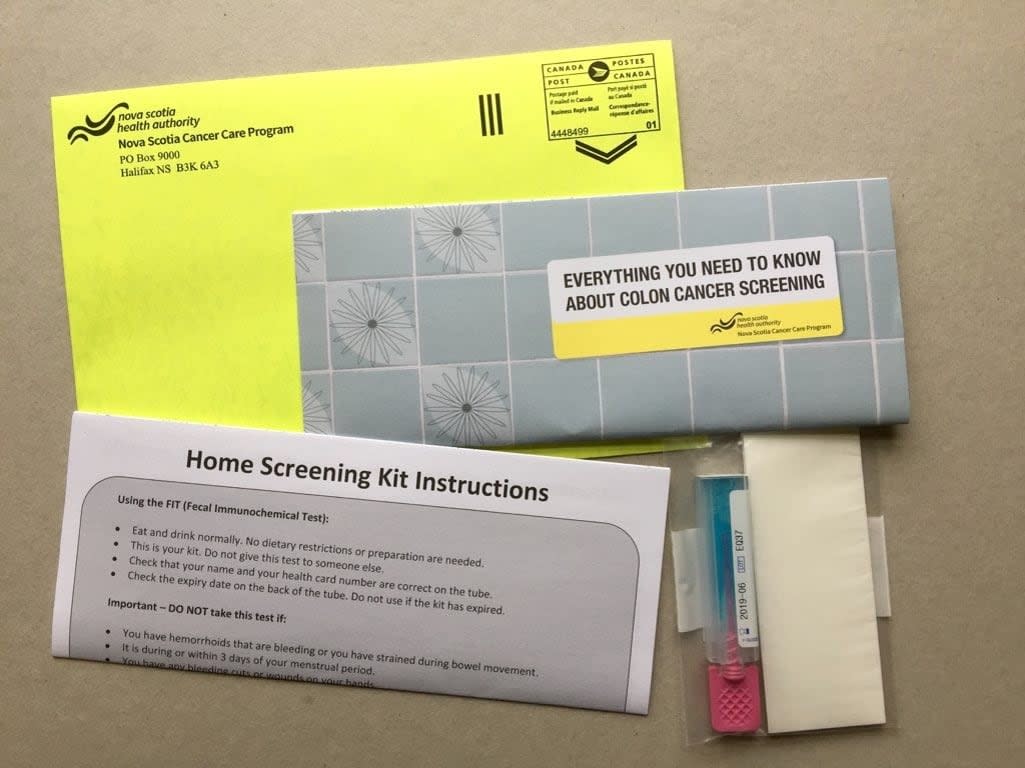Nova Scotians over 50 urged to complete and return mailed-out colon cancer screening test

The head of a program aimed at preventing colon cancer in the province is urging residents not to ignore the fecal immunochemical test (FIT) when it arrives in the mail.
Dr. Michael Stewart, the medical director of the program, said the test can be a lifesaver.
"When you get your kit, just do it, get it done," Stewart told CBC News.
The province will send any Nova Scotian with a health card a FIT kit in the mail in the weeks after turning 50, continuing to age 75. The tests are mailed out every two years on even birthdays at ages 50, 52, 54, and so on.
It requires people to collect a tiny sample of stool (feces), put it in the enclosed container and mail it to a laboratory where it will be checked for blood which could indicate bleeding polyps in the colon and possibly cancer.
There are some rare exceptions.
Jose Kuanberg has been living in Nova Scotia since September 2020. He's a colon cancer survivor who has been cancer-free for 15 years. Given his history he's required to get a colonoscopy every five years. Regardless, Kuanberg contacted CBC Nova Scotia to find out why he doesn't receive the home FIT test.
It's not junk mail, colon cancer survivor says
"I've never seen one kit to be honest with you. So I don't really know what it looks like," Kuanberg says. He lives with a colostomy bag. After living with it for several years, he says he's gotten used to it. He attends support meetings with others who have a colostomy and says it's something he doesn't think much about anymore. He urges anyone who gets at FIT kit in the mail to use it.
"Sometimes you just kind of overlook it and throw it out and just think, 'Well that's just junk mail.' And it's not, it's not for me."
Exceptions for some
Stewart says people who get routine colonoscopies are an exception to the otherwise blanket mailout to residents at risk.
"If they have a relationship with a specialist or surgeon, someone who's managed their colon cancer for them, then that specialist or surgeon can also have them opt out of the program," Stewart said.
"In such cases, that patient is no longer considered an average risk and the stool test isn't the right test for this patient anymore. It's just going to complicate their care."
Once you've had a colonoscopy, you're considered protected for five to seven years.
Anyone without a health card or worried about not receiving one on time can call 1-866-599-2267.
MORE TOP STORIES


